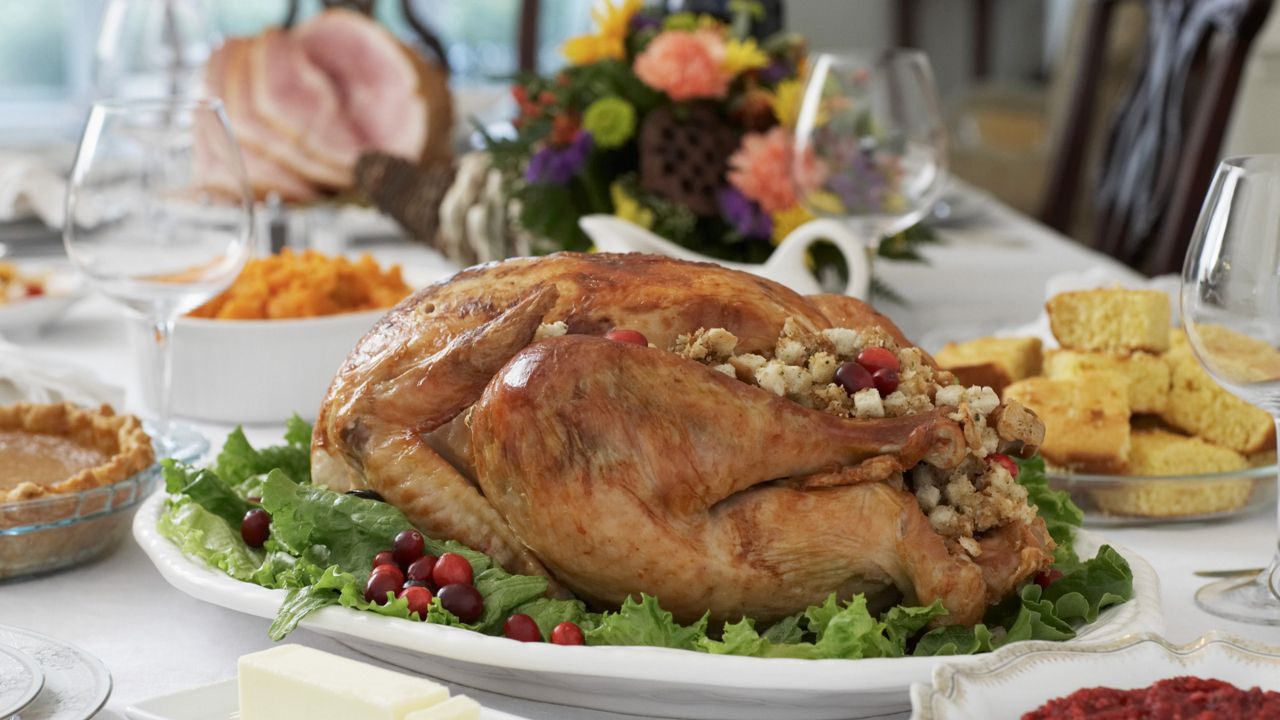DURHAM, N.C. — Turkey, green bean casserole, family gatherings, too much pie, arguing over politics. There are a lot of traditions around Thanksgiving. Add in this year: face masks, Zoom calls and social distancing.
Coronavirus case numbers are going up across the country as the pandemic drags on into the holiday season. Many states are seeing record spikes in COVID-19 cases and hospitalizations as the weather cools.
“The winter holiday season is really marked and defined by gatherings of family and friends,” said Emily Sickbert-Bennett, an infectious disease expert with UNC Hospitals. “This year, of course we have to approach those traditions very carefully and differently.”
“COVID transmission won’t halt for the holidays,” she said during a Zoom call for reporters. In fact, she said those traditions of indoor gatherings to share food and drink make it much easier for the virus to spread.
Sickbert-Bennett said the best way to make sure the coronavirus doesn’t spread at holiday celebrations is the same advice the country has been hearing for months: wear a mask, wash your hands, social distancing and sick people should stay home.
She said the best thing would be to avoid gatherings with people outside your home or hold get-togethers outdoors.
“Outdoors is better than inside,” Sickbert-Bennett said in a separate statement. “If you are indoors, gather in larger spaces where people can spread out as opposed to smaller, close quarters.”
Many states and cities have limits on gatherings of unrelated people. North Carolina this week reduced the number of people allowed to gather indoors from 25 to 10 ahead of the holiday season.
Earlier in the pandemic, outbreaks tended to center in places like long-term care facilities, Sickbert-Bennett said. But now the data shows outbreaks are coming from gatherings. “If you look at the cluster data that the state health department reports, these are exactly the settings that it's happening in. It is dangerous to think it can’t happen to you,” she said.
There have been several well-documented clusters associated with religious gatherings. Perhaps the most famous cluster of coronavirus cases is from a gathering at the White House for then-Supreme Court nominee Amy Coney Barrett when the president and others were infected.
"The best way to protect loved ones during Thanksgiving is to limit travel and gatherings with anyone who does not live in your household," said Dr. Mandy K. Cohen, secretary of the North Carolina Department of Health and Human Services.
"Consider getting a screening test ahead of your Thanksgiving travel or gathering. If you test positive, stay home and isolate. If you test negative, it’s not a free pass,” Cohen said. A negative test is only for a point in time — someone can still contract the virus, say, while traveling to see family.
UNC psychiatrist Crystal Schiller said her family is trying to adapt their traditions even if they don’t get to gather in person this year. “In my family, we all enjoy cooking dinner together. So this year we’re going to be doing that in a different way on Zoom,” she said.
“Unless it’s an essential trip, stay home. Do your Thanksgiving virtually with your family,” Washington Post travel columnist Christopher Elliot said in an interview with Spectrum News 1. “I know it’s a little bit weird but it’s better to be a little weird than to be sick or even die.”
Traveling by plane, with lots of people gathered in airports and on planes, can put people at high risk for contracting the virus before they even get to a holiday gathering.
Some states also have travel restrictions and quarantines for out of state travelers. New York, New Jersey and Connecticut, for example, require people to quarantine for 14 days when they arrive. In New York, people can “test out” of the quarantine by getting a COVID-19 test before arriving and then getting another negative test after quarantining in the state for three days.
Other states, including Ohio, New Mexico and Massachusetts have quarantine requirements for visitors. People traveling for the holidays should review the public health rules to any other states they plan to visit.



